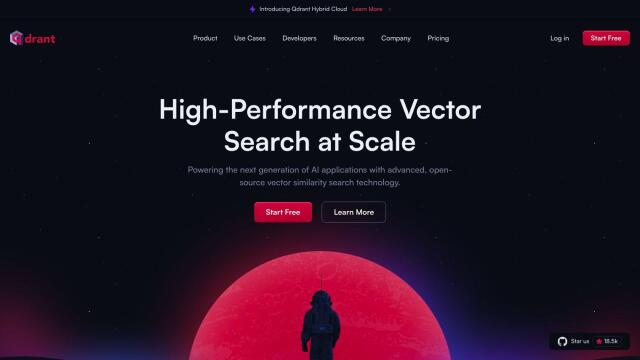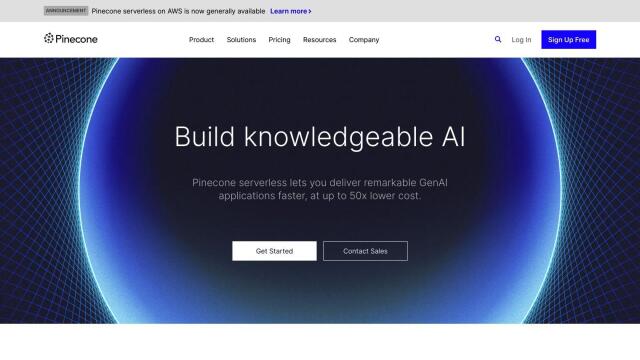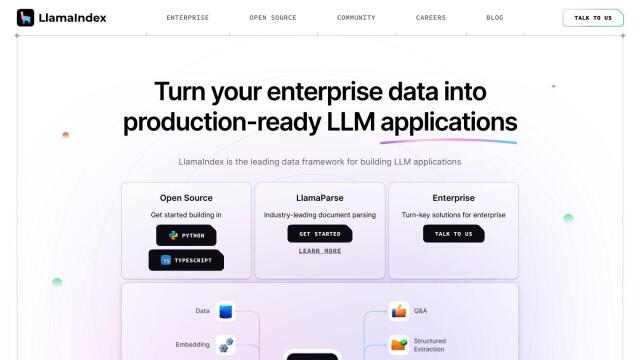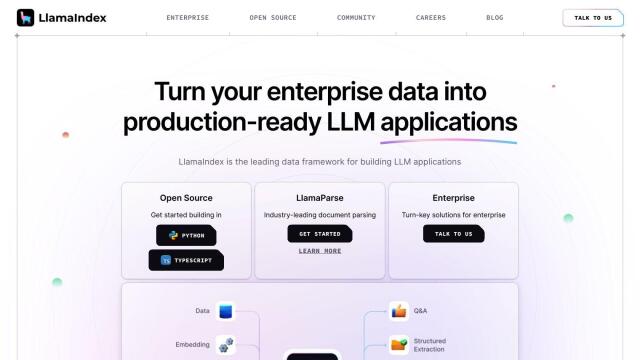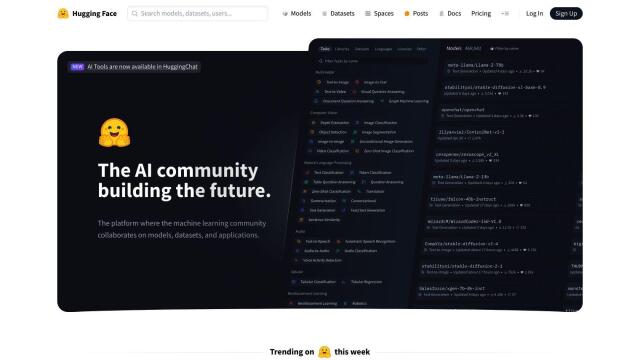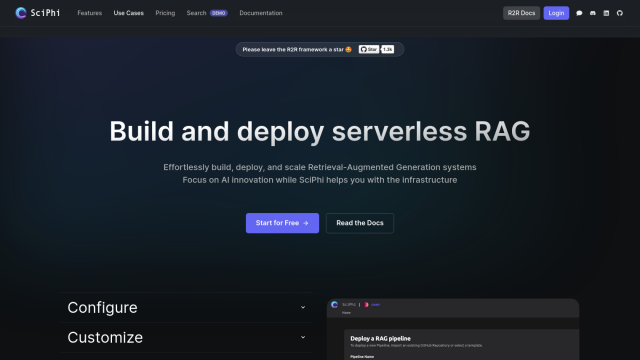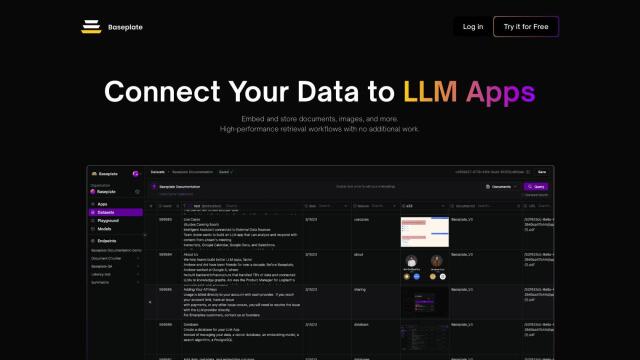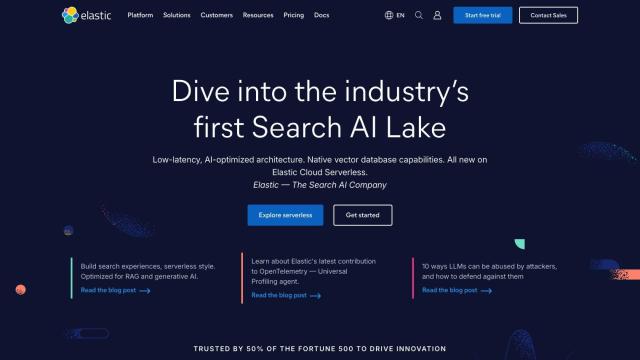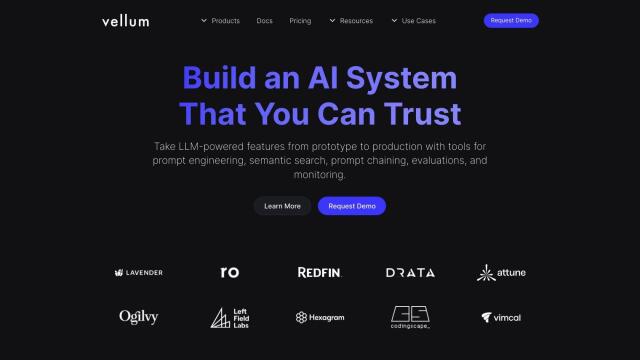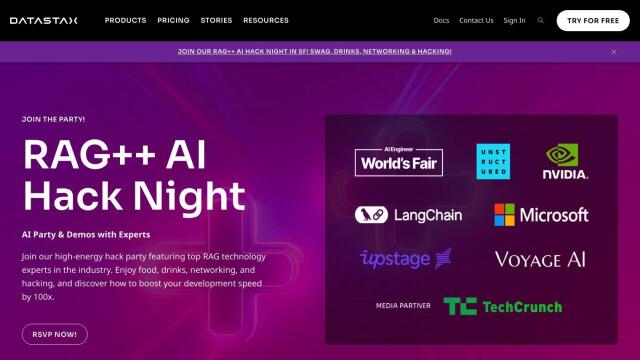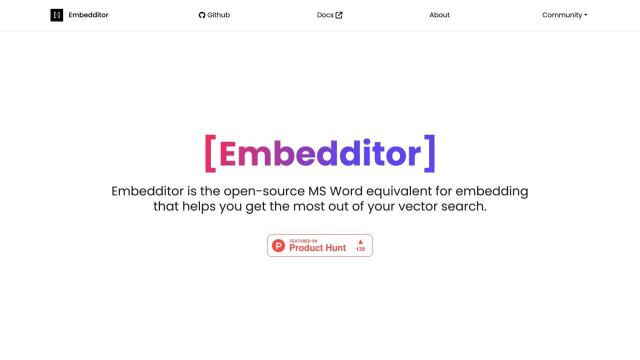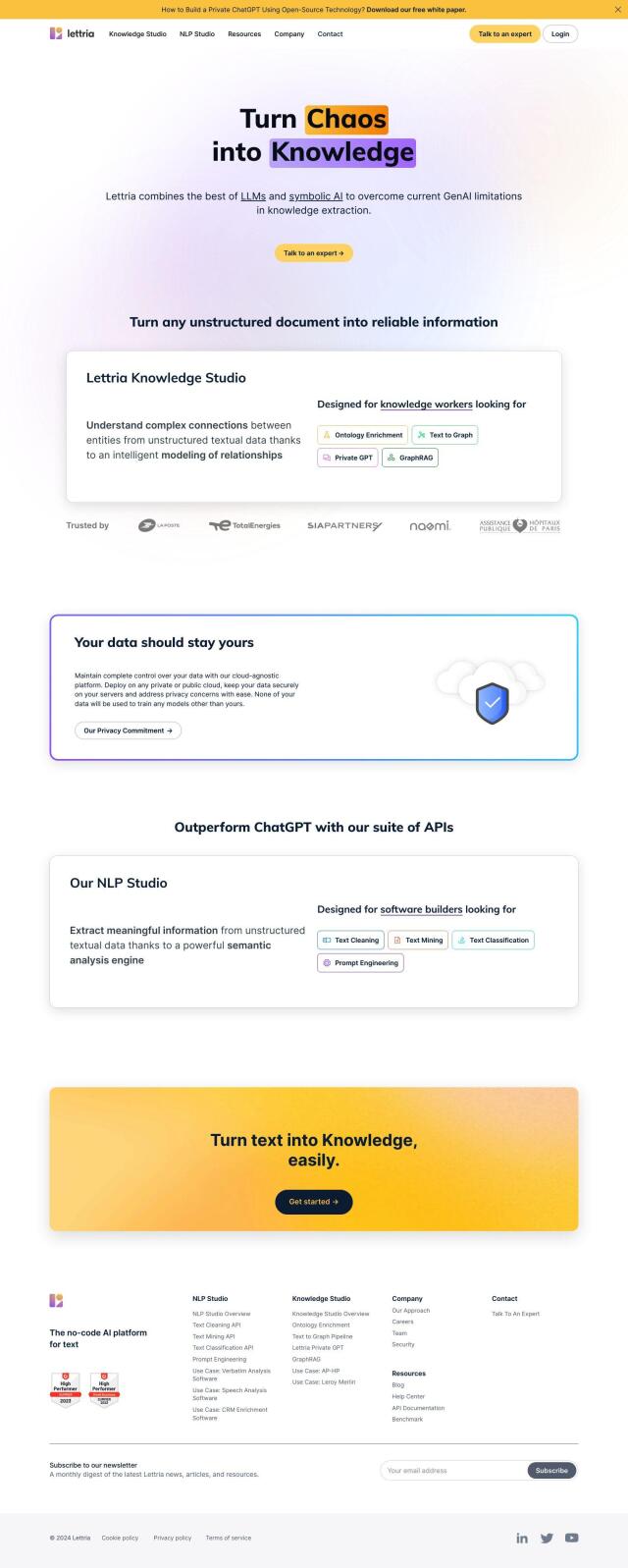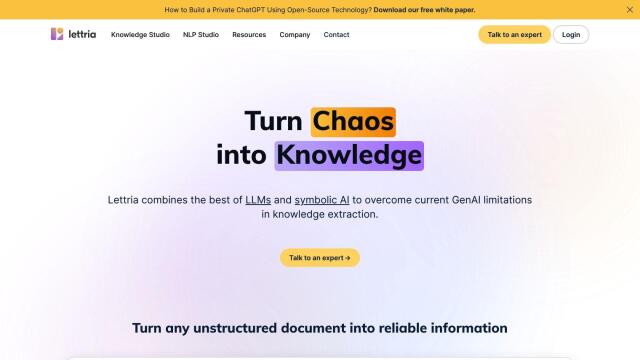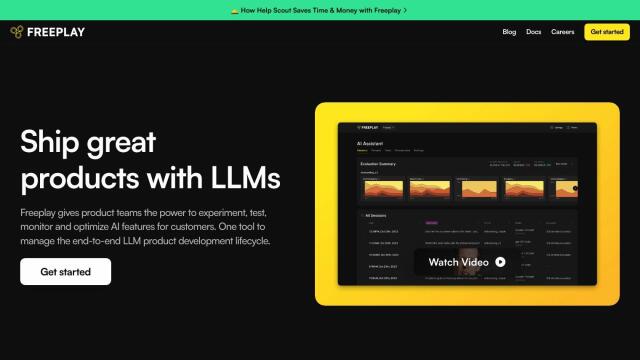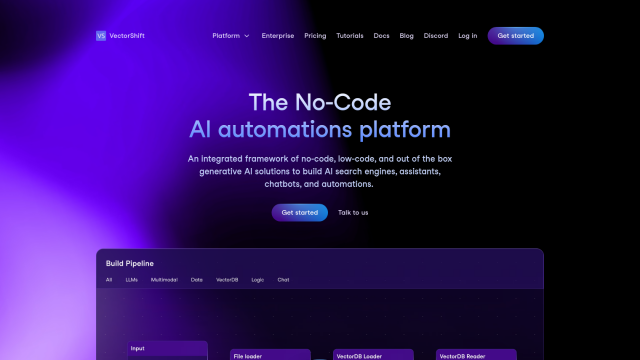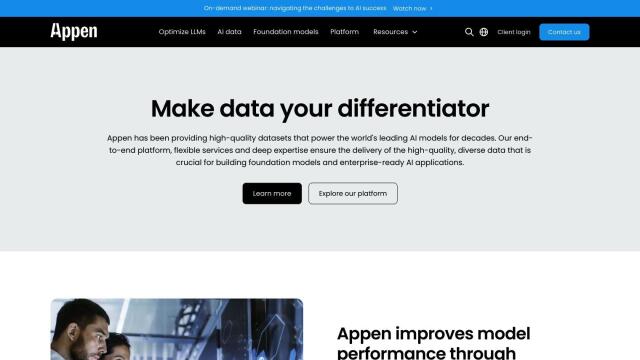Question: How can I experiment with different chunking and embedding methods to find the best approach for my natural language data?

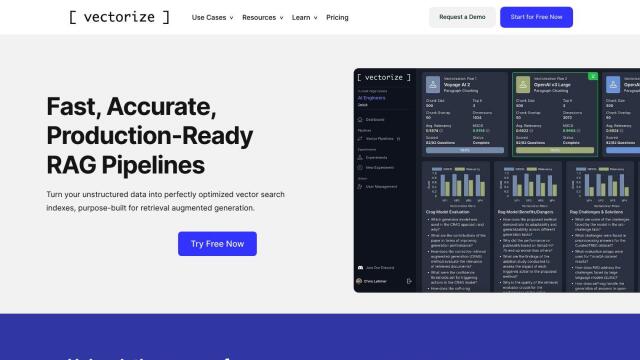
Vectorize
For testing different chunking and embedding approaches, Vectorize is a great choice. It lets you convert raw data into optimized vector search indexes, supports different chunking and embedding techniques, and comes with built-in connectors to services like Hugging Face and Google Vertex. Vectorize offers a range of pricing plans, too, so you can use it for personal experiments or for a production environment.

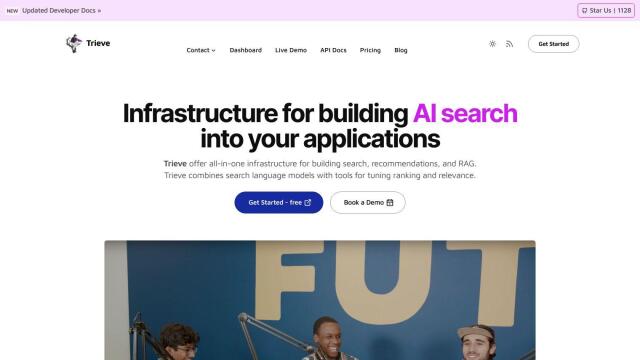
Trieve
Another powerful option is Trieve, which offers a full-stack foundation for building search, recommendations and RAG experiences. It includes private managed embedding models, semantic vector search and hybrid search capabilities. Trieve supports custom and open-source embedding models, and offers a free plan for noncommercial self-hosting, so you can get started with low upfront costs.


Dataloop
If you want an all-purpose AI development platform, Dataloop is also worth a look. It combines data curation, model management, pipeline orchestration and human feedback integration to speed up AI app development. Dataloop handles a range of unstructured data and has strong security controls, so it's a good fit for companies that want to boost collaboration and development productivity.

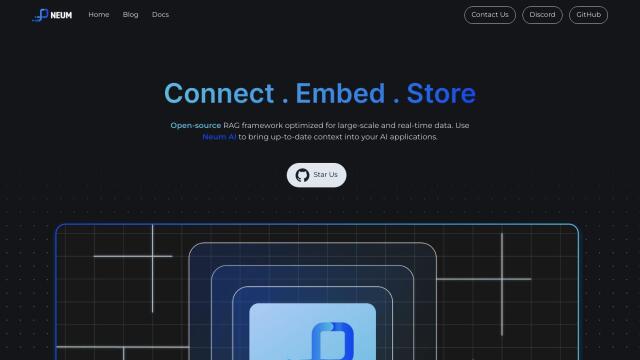
Neum AI
Last, Neum AI is an open-source framework for building and managing data infrastructure for RAG and semantic search. It includes scalable pipelines for processing millions of vectors and supports real-time data embedding and indexing. Neum AI can be easily integrated with services like Supabase, and offers a range of pricing plans for different needs and scale.

